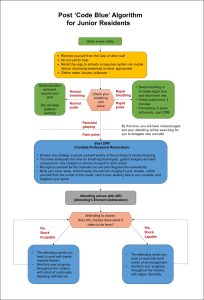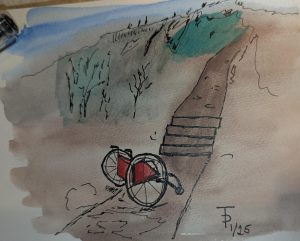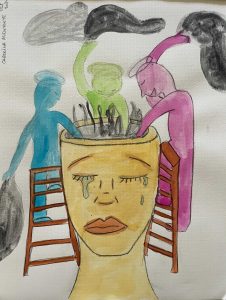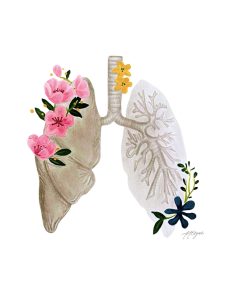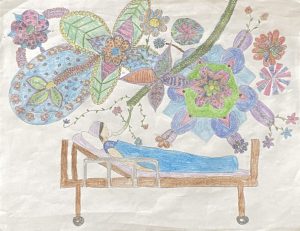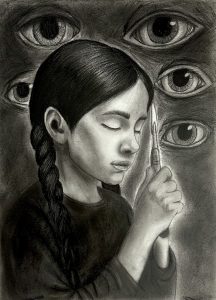- Home
- /
- Latest Voices
- /
- Page 49
Latest Voices
December More Voices: Connections
Dear Pulse readers,
When I was a second-year medical student, a physician in our lecture hall warned us what would happen if we made a particular error:
“Your patient’s family will sue you,” he said sharply, as if reprimanding us for a mistake we’d already made.
“And you will deserve to be sued.”
The Expect
Statistically, to avoid missing a case of appendicitis, one must send to the ER some patients with symptoms of appendicitis whose appendices turn out to be normal. This lesson from medical school is imprinted indelibly on my mind.
In my residency program, if a resident sent a patient to the ER, the resident was required to go the ER to evaluate them, to further their learning. However, this created a conflict of interest—if you had to meet a patient in the ER, you missed out on sleep. Hence I thought hard about the disposition of each patient.
Shock and Awe
My ambulance partner and I responded to a 9-1-1 call for a person with difficulty breathing at a department store, but we couldn’t find anybody needing medical attention. A worker pointed to the metal ladder at the back, saying there was a guy working on the roof, and they hadn’t seen him in a while.
Finding the Words
A hush fell over the room as reality sank in. “He likely will not survive this,” the surgeon said.
The patient’s brow wrinkled in confusion. Why was everyone so quiet? His eyes met mine, pleading for a clue and awaiting my translation.
The Power of Belief
At 3:00 a.m. one morning, my wife collapsed in our small bathroom with a crash. She was, it turned out, having her first epileptic grand-mal seizure at age 48. Out of the blue! I was able to get her back to bed and then watched her have another nine seizures before calling the ambulance company. Shortly afterward, a fire truck, a paramedic truck, and an ambulance arrived, along with seven first-responders.
Emergency Surgery: The Easy Part
“When I went in, it was as if a grenade had gone off in there.” That was what my husband’s surgeon told me after he performed emergency surgery to address the havoc in my husband’s colon and bladder. A diverticular sac had ruptured and eaten a lima-bean–sized hole in my husband’s bladder. This was no mere urinary tract infection, as my husband had thought; it was massive infection, called a colovesical fistula.
CCU Patient
I found out during Monday morning sign-out that the CCU patient I’d cared for over the weekend had died. We’d rounded on him the previous day, and he’d been making slow but steady progress. We were able to wean his balloon pump, the pressors, and then in combination, his sedation and oxygen requirements. He’d been extubated for over twenty-four hours.
Halloween Fright
My wife and I had just gotten home from work one Halloween evening when we got one of “those calls.” A young, male voice told me our nineteen-year-old daughter, Liza, had gone to her college dispensary with abdominal pain and had been sent to a local teaching hospital several hours before. He told me she had been admitted, and they wanted permission to do an appendectomy.
La Emergencia
A stereotypical pathologist, my father was a man of few words and fewer friends. He spent long days in solitude with his microscope, examining tissues and cells. In 1982, almost 20 years before his own diagnosis with metastatic breast cancer, he published a rare case in which breast cancer cells invaded individual chest muscle fibers. He later examined his own breast biopsy.


